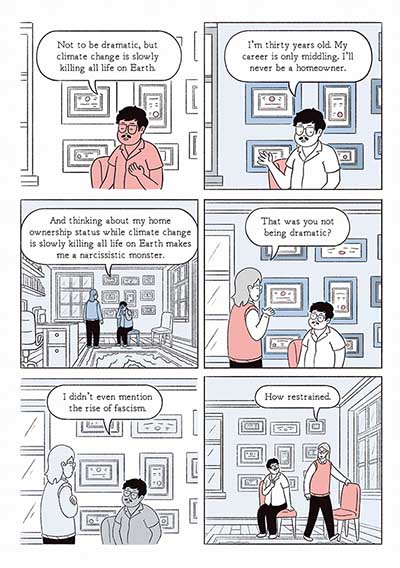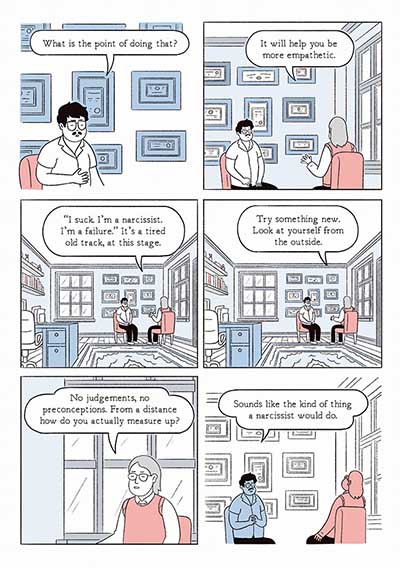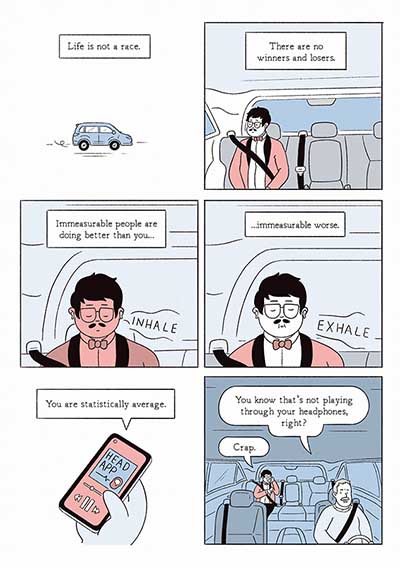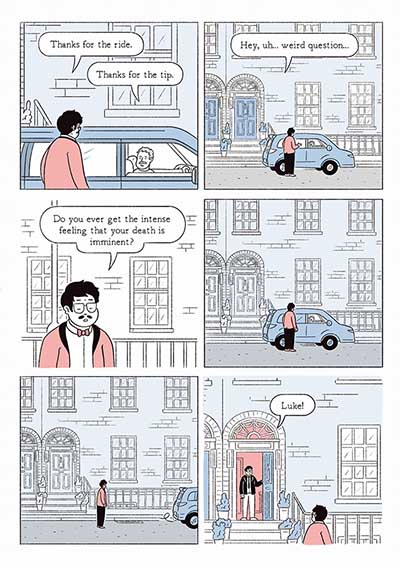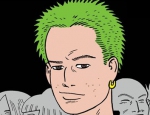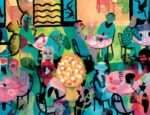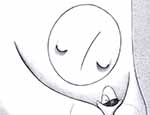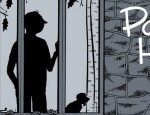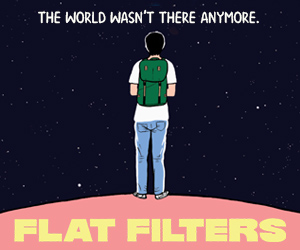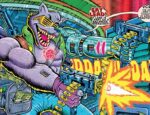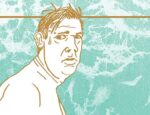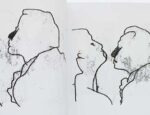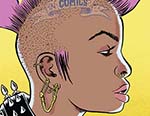There are two predominant explanations of what a metanarrative is, when one engages in literary criticism. One refers to the idea of experimentation, where an author wilfully chooses to break a wall and identify the work as fictional, making the reader a participant. The other refers to layers of meaning that slowly accrue to build a bigger picture. Luke Healy understands both definitions well and exploits them to masterful effect with his latest work.
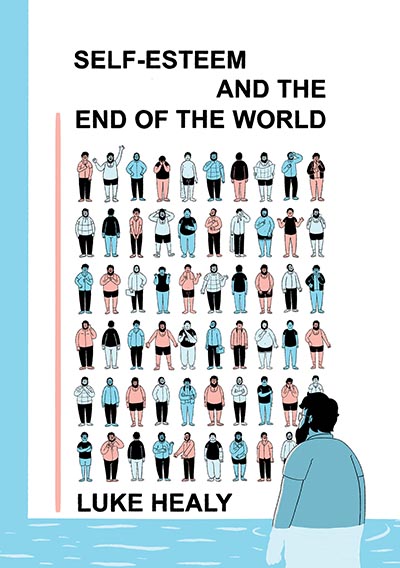
Self-Esteem and the End of the World really is about, well, self-esteem and the end of the world. It is about lots more though, which slowly becomes clearer as one moves through each wildly dissimilar chapter. For what it is worth, here is a summary of what the book is about: Fictional Healy is a cartoonist struggling with a crisis of confidence, an inability to form strong social connections, and a narcissistic temperament combined with self-loathing that prevents him from adjusting to modern life. He turns to self-help books and new age meditation apps for support that is never forthcoming. He also has a fraught relationship with his mother, and with his twin brother.
This Healy also punctures holes in every aspect of modern living, from the relentless grasp of capitalism to our refusal to acknowledge an impending environmental crisis. He has given up art for a series of meaningless corporate jobs, one of which tracks his performance via a GPS-enabled smart cushion. He also suffers from social anxiety and is eventually forced to come to terms with who he is by virtue of a tragic loss. What gives this story so much poignancy is Healy’s awareness of how precarious our collective position is, at this moment in history. He uses it to give his bumbling anti-hero’s behaviour a kind of noble pathos.
There are all kinds of amusing asides here, from talking mice who share Healy’s apartment, to a comic within the comic (titled ‘Of the Monstrous Pictures of Whales’) about a family whale-watching trip, which is powerful enough to stand on its own. The art will be familiar to anyone who has read Healy’s earlier work, which is to say that it is all clean lines and moments of stillness that allow him to throw smart ideas into sharp relief.
It is impossible to try and gauge how much of Healy’s persona is in his character. When asked about this with reference to his last book, he referred to himself as a “bit of a repressed guy (many thanks to the emotional communication skills taught in ‘90s Catholic Ireland),” for whom writing these books was an “attempt to communicate complex or subtle feelings” about experiences he had had. It is probably what lends even the more far-fetched episodes of Self-Esteem and the End of the World so much authenticity. They sound dystopic, yet strangely familiar, as if we are already living in these end times and just don’t know it yet. What this fictional Healy embodies, ultimately, is every artist’s attempt to understand the nature of existence with questions that have been around forever: Why are we here, what are we doing, and does any of it mean anything?
Imagine what Healy must be like at a party. On the one hand, he’s the friendly guy wilfully engaging with guests, sharing in their enjoyment. On the other, he’s the critical chronicler of human experience, sitting in a corner making notes. Both versions collide in this fictional account of an artist and cartoonist trying to cope in a world teetering on the edge of climate catastrophe. It’s smart, worryingly prescient, and very funny. I’d invite him to every party.
Luke Healy (W/A) • Drawn & Quarterly/Faber, $29.95/£20.00
Buy online from Drawn & Quarterly here
Review by Lindsay Pereira





